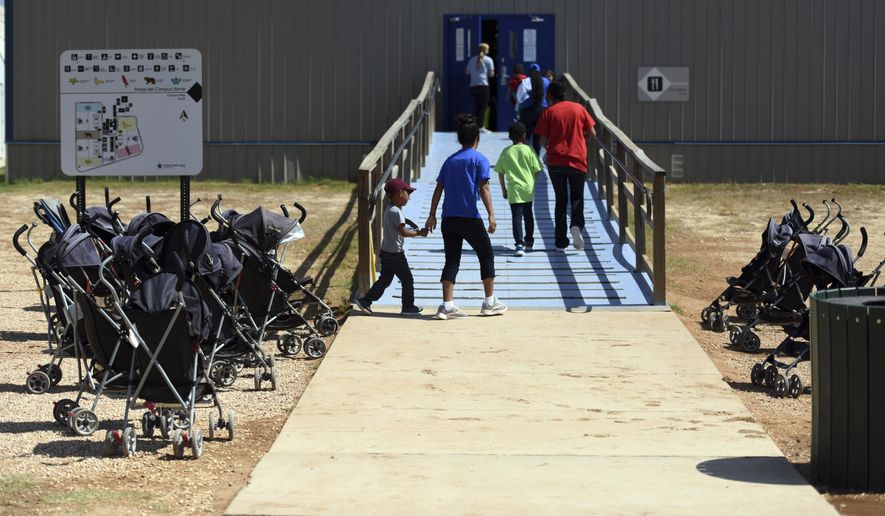A key senator announced legislation Thursday to authorize the government to hold families who crossed the border illegally in detention while they await their deportation cases, moving to clean up the legal mess that led to family separations earlier this year.
Sen. Ron Johnson, Wisconsin Republican and chairman of the Homeland Security and Governmental Affairs Committee, also wants to see streamlined hiring of border agents and better reporting so Congress gets a clearer picture of deportation wait times, treatment of people in detention and backlogs in asylum cases.
But the crux of the bill would erase court precedents that have created what agents call a catch-and-release policy, forcing them to quickly process and free illegal immigrant families from custody, leaving them to disappear into the shadows.
The alternative, which the Trump administration tried earlier this year, is to charge the parents with a crime and hold them — but because the criminal justice system doesn’t allow for family detention, that means separating the parents from their children. The administration faced a ferocious backlash to that practice — and a federal judge ruled it illegal.
Mr. Johnson said his bill solves that.
“The Families Act addresses this specific problem by overriding the court decision that has produced the current lose-lose situation and by providing the resources to expeditiously adjudicate asylum claims,” he said.
The bill itself is an important ante in the immigration debate.
Another bill announced by a bipartisan group of senators earlier this week deals with the other thorny problem the government faces: immigrant children traveling without parents.
Taken together, the two bills suggest lawmakers are beginning to grapple with the two big “loopholes” that have fueled this decade’s flow of illegal immigration.
Mr. Johnson oversaw a hearing this week where immigration officials revealed major flaws in the system.
Nearly a third of illegal immigrant families released on ankle monitoring cut off the bracelets in the first weeks and months after they’re put on the streets, leaving them free to disappear into the shadows, said Matthew Albence, the top deportation official at U.S. Immigration and Customs Enforcement.
And 80 percent of households applying to sponsor Unaccompanied Alien Children have someone who is already an immigrant who entered the U.S. illegally, and many of them also have criminal records.
That could explain the latest numbers showing that 13 percent of the families don’t respond to follow-up calls from the federal Health Department seeking to check in on how the kids are doing after they are placed with the sponsors.
Health and Human Services Department officials bristle at claims those children are “lost,” saying the government doesn’t have legal authority to intervene.
Sen. Rob Portman, Ohio Republican, is leading a bipartisan coalition of senators with legislation to clear that situation up. His bill, announced Tuesday, would lay out the government’s legal obligations, saying the Health Department has a responsibility to monitor the children until their immigration cases are completed.
That would include revoking sponsorship from people who don’t make sure the UAC show up for their hearings.
• Stephen Dinan can be reached at sdinan@washingtontimes.com.




Please read our comment policy before commenting.